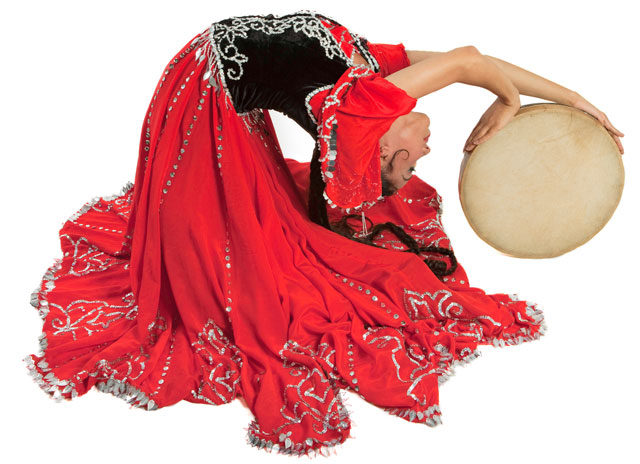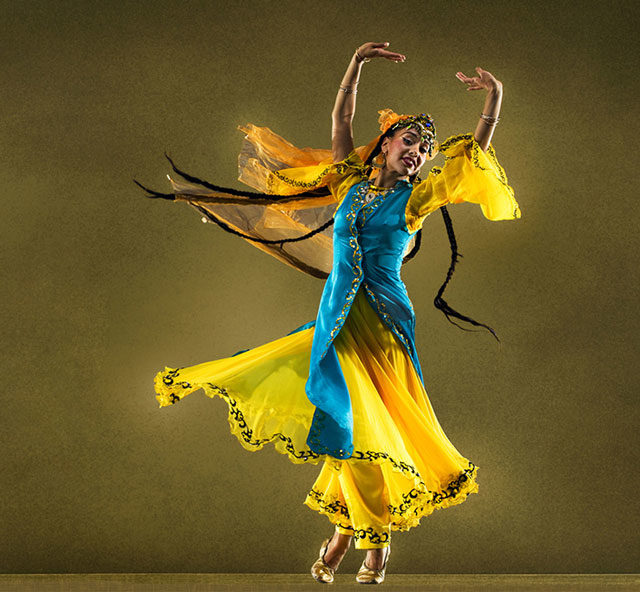Tara Catherine Pandeya’s project is a one-woman multimedia show inspired by human emotions. The work is a fictional dance world of Pandeya’s own invention, choreographed using the traditions of ethno-contemporary Central Asian dance.
“What are effective ways to express traditional and ethno-contemporary movement in a postmodern framework? How can one execute a harmonious synthesis between dance and technology in performance work? Are we able to retain the imprint of our ancestral lineages through expression in the body? As a specialist and traditional artist of Central Asian dance, I have a strong commitment to uphold and honor my form, but I am also not afraid to push boundaries and raise audacious questions.”

Raqsistan: A Cartography of the Body puts forth dance as an accessible art form capable of transcending linguistic, political, and religious boundaries. Central Asian dance is highly diverse and each regional dance style is distinctly evocative of its environment. For her performance, Pandeya will draw on four dance forms, representing four emotions: from Badakhshani, a dance based on fluidity of movement, which she will use to represent sadness; to the traditional Kulyabi dance, a virtuosic, expansive, and fast-paced dance style from Tajikistan, which visually evokes bliss. Her project makes Central Asian dance forms more visible and illuminates the cross-cultural ties intrinsic to our collective history.
In her piece, Pandeya works with the challenges she faced as a single female dancer with the Tajik National Ensemble in the Islamic Republic of Tajikistan over the past year. Her Forecast Forum contribution features excerpts filmed in the Pamir Mountains of Tajikistan in 2006.
Tara Catherine Pandeya is a German-Indian-American dancer, choreographer, and specialist in Central Asian dance traditions. Learn more about her work at taradances.weebly.com.
Photos: Daniel Bahmani, RJ Muna

